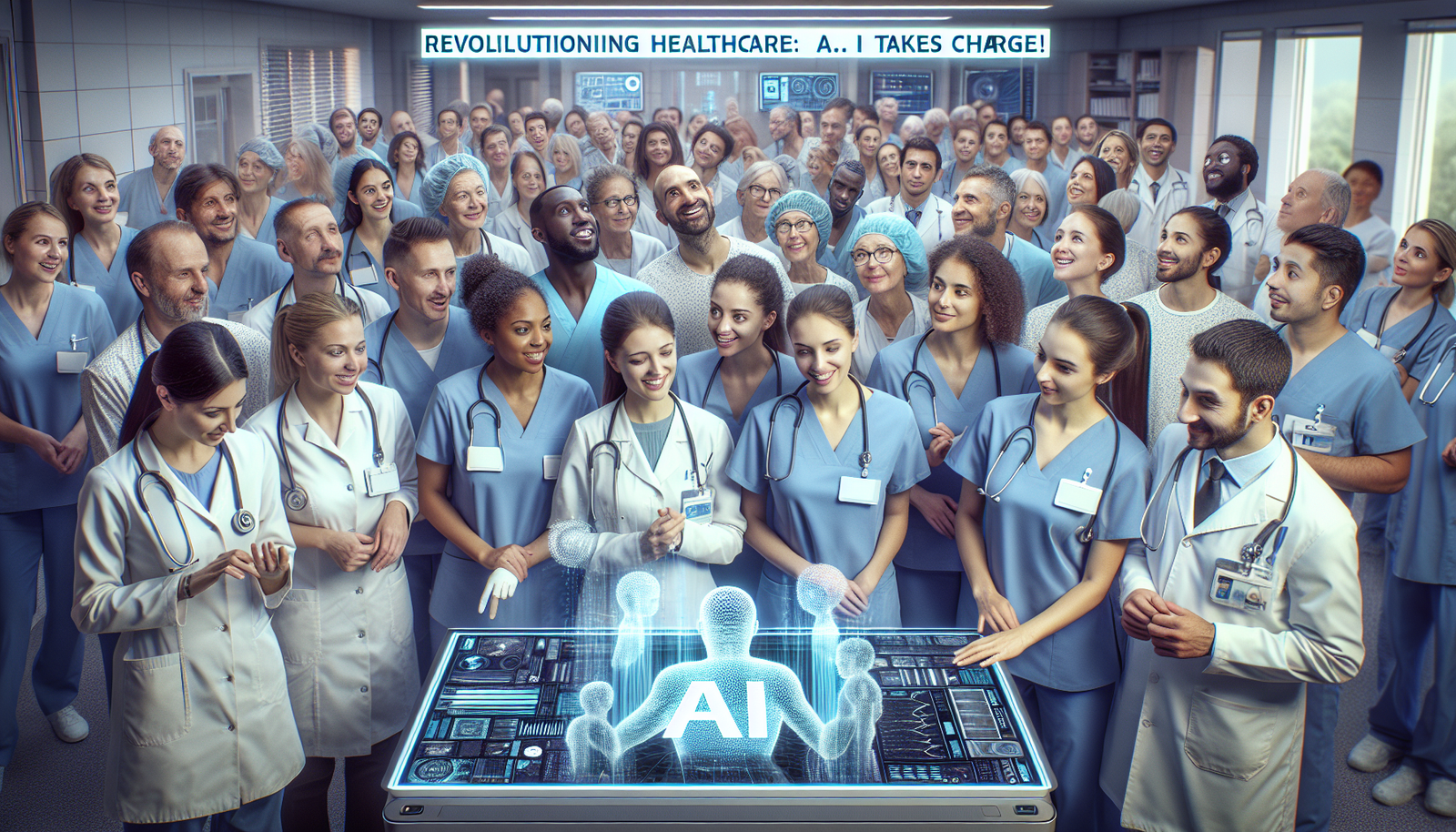The introduction of artificial intelligence in hospitals marks an unprecedented transformation in the medical sector. The CHU de Montpellier stands out by integrating this revolutionary technology to optimize care and screening. Thanks to generative AI, the management of clinical data is evolving towards unparalleled efficiency, thus shaping the future of treatments. This advancement comes with significant ethical and technical challenges. Healthcare professionals must navigate these issues while adopting innovative solutions to improve the quality of care.
The impact of artificial intelligence at CHU de Montpellier
The CHU de Montpellier positions itself at the forefront of health innovation with the integration of artificial intelligence. Since late 2020, the institution has been designated as a “territorial extractor” to support public hospitals in the region. This initiative aligns with a desire to accelerate innovation in the medical sector.
During the conference on artificial intelligence organized by the CHU, experts presented the possibilities of exploiting massive amounts of clinical data. This approach allows for better screening of pathologies, particularly tumors, by refining diagnoses through sophisticated algorithms.
A revolution underway
This transformation is not just a simple evolution; it represents a true revolution in the medical field. AI is changing the usual paradigms of medicine and innovation. Healthcare professionals can now access powerful tools that enhance their analytical capabilities.
Recent work conducted by researchers at the ERIOS research center, a unique space dedicated to the integration of digital tools in health, highlights promising advancements. These indicate a future where precision in treatment will be unmatched.
Multidimensional integration of AI
The CHU de Montpellier integrates AI at all levels of operation: management, care, research, and teaching. This multidimensional approach ensures synergy between different medical specialties, thus promoting a global response to current challenges.
Perspectives and challenges
The rise of artificial intelligence raises ethical and regulatory questions. The regulation of AI is the subject of intense debate, highlighting the stakes of security and the protection of sensitive data. Organizations like the CNIL advocate for a balance between innovation and the need to ensure patient safety.
The hospital landscape is transforming, but establishments must navigate carefully. Collaboration with startups and experts in medical technology proves essential to maintain a dynamic of continuous innovation.
Future issues of AI in health
Healthcare actors must now anticipate the evolution of digital tools. The implementation of AI could thus influence medical training, giving a prominent place to the learning of advanced technologies. Healthcare professionals must be able to adapt quickly to these new realities.
Notable studies, such as those carried out in the context of the partnership between Intrasense and the CHU, examine the impact of AI solutions on diagnostic accuracy. The ability of artificial intelligence to process considerable volumes of data underlies this advancement.
Potential conclusion
The initiatives at CHU de Montpellier signal a new era where artificial intelligence becomes a key player in the treatment of diseases. These advances are but a prelude to the transformations to come in the health sector, shaping a promising future for tomorrow’s medicine. France, among others, is engaged in a global race for an ethical framework for these technologies.
Frequently asked questions
What is artificial intelligence (AI) and how is it used at CHU de Montpellier?
Artificial intelligence is a set of technologies that enables machines to simulate intelligent behaviors. At CHU de Montpellier, it is used for the processing and analysis of medical data, helping to refine screening and improve diagnoses.
What advantages does the introduction of AI bring to healthcare at CHU de Montpellier?
AI allows for the processing of massive volumes of data to identify patterns, improve diagnostic accuracy, personalize treatments, and optimize resource management effectively.
How does AI influence medical research at CHU de Montpellier?
It facilitates the analysis of complex data and the development of new therapeutic approaches, accelerating research and opening new perspectives for innovative treatments.
Can the use of AI at CHU de Montpellier harm the doctor-patient relationship?
No, AI is designed to support physicians, not replace them. It allows doctors to make more informed decisions and spend more time with their patients.
What security measures are in place to protect patient data with the use of AI at CHU de Montpellier?
The CHU adheres to strict data protection protocols in accordance with current regulations to ensure the confidentiality and security of patient information used in AI systems.
Is the medical staff at CHU de Montpellier trained to use artificial intelligence?
Yes, specific training is provided to medical staff to maximize the use of AI tools, ensuring a smooth integration of these technologies into clinical practices.
What are the future perspectives of AI in hospitals, particularly at CHU de Montpellier?
Perspectives include even deeper integration of AI into clinical processes, the development of innovative solutions for public health, and continuous improvement of personalized care for patients.
How does AI contribute to improving operational efficiency at CHU de Montpellier?
By optimizing workflows, reducing wait times, and facilitating inventory and appointment management, AI helps to enhance operational efficiency within the hospital.






